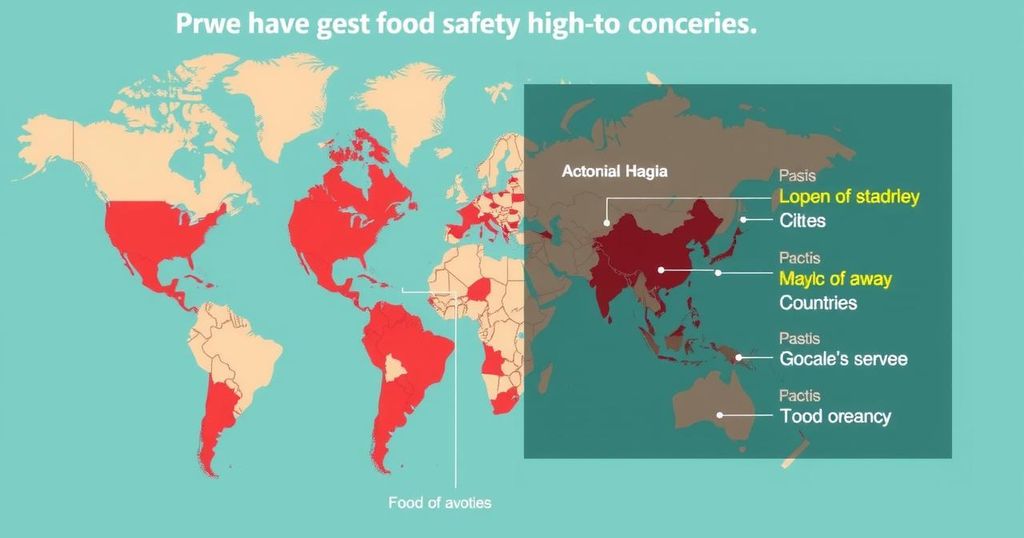Weather
21 KERALA BATTALION NCC, AFRICA, ASIA, BRAZIL, CAMBODIA, CONSUMER PROTECTION AGENCY, FOOD POISONING, FOOD SAFETY, KA, KARNAIL SINGH, KERALA, NATIONAL CADET CORPS, NCC, NIGERIA, NORTH AMERICA, NUTRITION, PUBLIC HEALTH, RAIN, SIHANOUKVILLE, SINGH, SOUTH AMERICA, UNITED STATES, WORLD HEALTH ORGANIZATION
Marisol Gonzalez
0 Comments
Global Overview of Recent Food Poisoning Incidents and Public Health Implications
A survey of recent food poisoning cases across multiple countries reveals alarming trends in health safety violations. Cambodia, India, Brazil, Nigeria, and the United States have all experienced significant outbreaks, calling into question food safety practices and the need for enhanced oversight and regulations.
The global landscape of food poisoning incidents has underscored serious health threats in various countries, drawing attention to a range of troubling cases involving bacterial contamination and inadequate food safety measures. In Cambodia, a city hall meeting’s catering resulted in multiple attendees suffering from foodborne illnesses due to E. coli and Staphylococcus aureus contamination in the sandwiches. In India, food poisoning affected children and cadets, leading to public outcry and demands for better regulation. Brazil reported a tragic incident involving a New Year’s meal that caused fatalities, highlighting systemic food safety issues. In Nigeria, a wedding reception incident has drawn police investigations into possible foul play regarding contaminated food. For its part, the United States has witnessed a high-profile case involving airline employees, prompting union-led initiatives for employee support and proactive measures. These incidents uniformly emphasize the dire consequences of negligence in food handling and the importance of stringent adherence to established food safety protocols.
Food poisoning presents a significant public health challenge globally, with various bacterial and viral agents responsible for numerous illnesses annually. Factors contributing to food poisoning outbreaks typically include improper food handling, inadequate cooking processes, and cross-contamination. The World Health Organization has established food safety guidelines that focus on hygiene, proper cooking temperatures, and the use of safe ingredients. The recent uptick in incidents from various countries reinforces the urgent need for governments and food service providers to ensure compliance with these standards.
In reviewing recent food poisoning incidents worldwide, it is evident that lapses in food safety protocols can lead to severe health consequences, including hospitalization and fatalities. These developments serve as critical reminders of the need for improved food safety practices, public awareness, and government oversight. As such, adherence to established guidelines and responses to reported incidents will determine public health outcomes moving forward.
Original Source: www.foodpoisoningnews.com




Post Comment